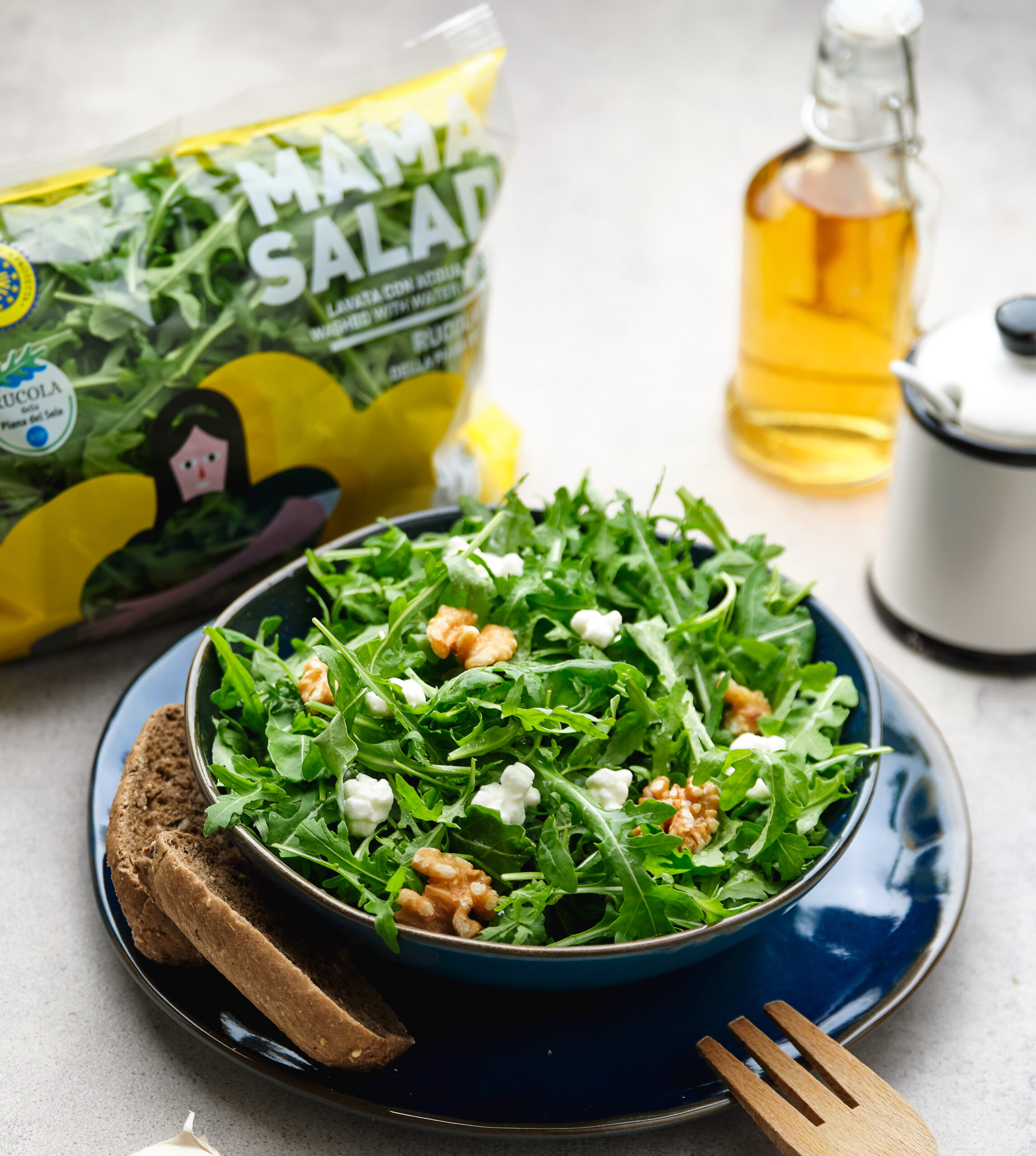
11 Jun Arugula is good for our body. Here’s why!
Rucola (arugula, rocket) is an annual herbaceous plant belonging to the Brassicaceae family, whose uses are recognized in both culinary and medical/herbal contexts. Its history is very ancient, to the point that, even in Roman times, it was employed in numerous preparations as a flavoring ingredient for foods, but also as an aphrodisiac substance.
We are often inclined to think that arugula is a vegetable to be consumed exclusively in summer, perhaps enriching the salad we usually prepare to cool off from the heat. Nothing could be further from the truth. There are numerous beneficial properties that should encourage us to use Eruca sativa miller even when, as now, temperatures drop, and the cold chills the bones.
Here’s a little reminder to keep in mind, reminding us why it’s a good idea to keep arugula in the pantry.
Good for the figure
Arugula is rich in vitamin C, which promotes the synthesis of carnitine in the body, an amino acid capable of burning stored fats by accelerating metabolism and activating lipid oxidation. In addition, the presence of calcium, in addition to stimulating lipolysis, reduces the accumulation of lipids introduced through diet, producing a calming effect on nervous hunger. With low calorie intake, it is suitable for any type of dietary regimen and has draining and diuretic effects, thus helping the liver eliminate toxins.
Aids digestion
Arugula has digestive properties, as it contains some antioxidant compounds capable of protecting the liver and, consequently, improving the entire digestive process. The protective action of beta-carotene also helps prevent gastritis and ulcerative states.
Prevents inflammation and strengthens the immune system
The considerable amount of vitamin C in arugula helps strengthen the immune system, fight flu-like conditions and seasonal illnesses, and prevent inflammatory states of the respiratory system. Glucosinolates and flavonoids in arugula have antioxidant effects. Glucosinolates also have an active antibacterial and antiviral function, intervening in the reduction of inflammatory states.
Strengthens bones
Vitamin K, along with folic acid and calcium, helps mineralize bones, making them stronger and preventing osteoporosis. Vitamin K activates some plasma proteins, such as prothrombin, responsible for transforming fibrinogen into fibrin in order to regulate the coagulation process, stopping it when necessary to maintain the proper viscosity of the blood.
Prevents cancer
The antioxidant components in arugula, including vitamin C, beta-carotene, sulforaphane, other glucosinolates, and erucin, give this plant a preventive action against cancer.
Antidiabetic function
The fatty acids (palmitic acid, azelaic acid, trans-vaccenic acid, and palmitoleic acid) in arugula can control blood sugar levels.
Suitable for pregnant women
Arugula is ideal during pregnancy because it is rich in folates that transform into folic acid, playing a preventive role against fetal malformations and promoting proper development.
Beauty ally
Thanks to the presence of anti-inflammatory and antioxidant substances, arugula is an ingredient capable of nourishing the skin deeply, making it radiant, soft, and plump. Vitamins K and B9, on the other hand, give strength to the hair and promote hair growth by nourishing the fiber and making the hair thicker and stronger.
Relaxing action
In the form of an infusion, arugula has relaxing properties and is recommended to promote good sleep.
Natural aphrodisiac
Always considered an aphrodisiac par excellence, arugula is rich in minerals useful for sexual activity and the cardiovascular system. The content of nitrates with the release of nitric oxide could increase blood flow to the sexual organs, promoting erection.
It is good to note, in order to make the consumer attentive, informed, and aware of the purchase, that currently, one of the largest productions of arugula is in the Piana del Sele, where, in August 2020, thanks to a significant group effort, arugula obtained the prestigious IGP (Protected Geographical Indication) mark. Subsequently, the Consortium for the Protection of Piana del Sele IGP Arugula was established.
